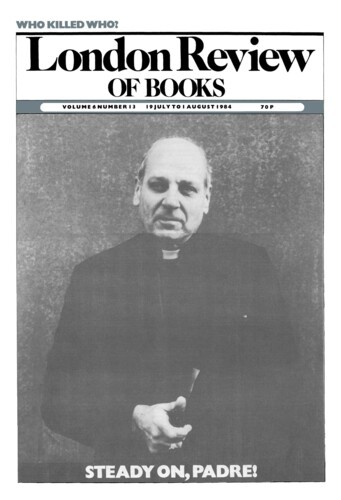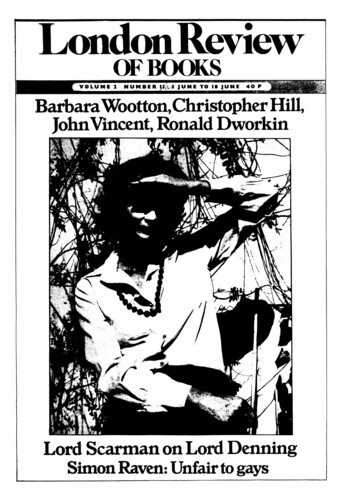Caruthers & Co
Simon Raven, 19 July 1984
Loder, the Fifth Form Cad, is being blackmailed by Hogg, the new School Butler: unless Loder gives Hogg £10, Hogg will go to the Head and report Loder for smoking and drinking in the Saloon Bar of the Black Ape; whereupon Loder will be sacked.



